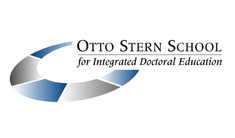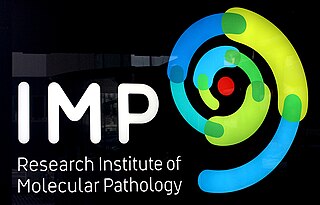
Postgraduate education, graduate education, or graduate school consists of academic or professional degrees, certificates, diplomas, or other qualifications usually pursued by post-secondary students who have earned an undergraduate (bachelor's) degree.

Heinrich Heine University Düsseldorf, named after German poet Heinrich Heine, is a public university in North Rhine-Westphalia, Germany, which was founded in 1965. It is the successor organization to Düsseldorf's Medical Academy of 1907.

The University of Bremen is a public university in Bremen, Germany, with approximately 23,500 people from 115 countries. It is one of 11 institutions which were successful in the category "Institutional Strategies" of the Excellence Initiative launched by the Federal Government and the Federal States in 2012. The university was also successful in the categories "Graduate Schools" and "Clusters of Excellence" of the initiative.

Semmelweis University is a research-led medical school in Budapest, Hungary, founded in 1769. With six faculties and a doctoral school it covers all aspects of medical and health sciences.

The Carl von Ossietzky University of Oldenburg is a university located in Oldenburg, Germany. It is one of the most important and highly regarded educational facilities in northwestern Germany and specialises in interdisciplinary and sustainable development studies and renewable energy studies with focus on solar and wind energy.

The University of Konstanz is a university in the city of Konstanz in Baden-Württemberg, Germany. Its main campus was opened on the Gießberg in 1972 after being founded in 1966. The university is Germany's southernmost university and is situated on the shore of Lake Constance just four kilometres from the Swiss border. It has been successful in the Excellence Initiative.
Translational medicine develops the clinical practice applications of the basic science aspects of the biomedical sciences; that is, it translates basic science to applied science in medical practice. It is defined by the European Society for Translational Medicine as "an interdisciplinary branch of the biomedical field supported by three main pillars: benchside, bedside, and community". The goal of translational medicine is to combine disciplines, resources, expertise, and techniques within these pillars to promote enhancements in prevention, diagnosis, and therapies. Accordingly, translational medicine is a highly interdisciplinary field, the primary goal of which is to coalesce assets of various natures within the individual pillars in order to improve the global healthcare system significantly.

Ulm University is a public university in Ulm, Baden-Württemberg, Germany. The University was founded in 1967 and focuses on natural sciences, medicine, engineering sciences, mathematics, economics and computer science. With 9,891 students, it is one of the youngest public universities in Germany. The campus of the university is located north of the city on a hill called Oberer Eselsberg, while the university hospital has additional sites across the city.
The International Max Planck Research School for Molecules of Life is a German centre for postgraduate training and research in life sciences. It is one among over 60 International Max Planck Research Schools in Germany. It is located in Munich and was established in 2005. The Ph.D. program is operated by the Max Planck Institute of Biochemistry and works in close collaboration with the Max Planck Institute for Biological Intelligence and two universities in Munich.
The Berlin Mathematical School (BMS) is a joint graduate school of the three renowned mathematics departments of the public research universities in Berlin: Freie Universität Berlin, Humboldt-Universität zu Berlin, and Technische Universität Berlin. In October 2006, the BMS was awarded one of the 18 prestigious graduate school awards by the Excellence Initiative of the German Federal Government for its innovative concept, its strong cross-disciplinary focus, and its outstanding teaching schedule tailored to the needs of students in an international environment. This was reconfirmed in June 2012 when the German Research Foundation announced that the BMS would also receive funding for a second period until 2017. Since 2019, the BMS is the graduate school in the Cluster of Excellence MATH+, which is funded by the Excellence Strategy. The BMS Chair is Jürg Kramer (HU), and the deputy Chairs are John M. Sullivan (TU) and Holger Reich (FU).
Roland Benz is a German biophysicist.

The Centre for Neuroscience and Cell Biology (CNC) is a nonprofit research institute founded in 1990, aiming to foster research in biomedicine and biotechnology and multidisciplinary graduate teaching at the University of Coimbra. CNC was the first established “Laboratório Associado” in Portugal, and it has steadily increased the scope of scientific competences over the years, with a strong focus on the exploitation of the fundamental mechanisms of ageing and brain diseases.

The Otto Stern School (OSS) is the platform for doctoral education in natural sciences at the Johann Wolfgang Goethe University Frankfurt am Main.
A Doctor of Philosophy is a terminal degree that usually denotes the highest level of academic achievement in a given discipline and is awarded following a course of graduate study and original research. The name of the degree is most often abbreviated PhD, pronounced as three separate letters.

The Research Institute of Molecular Pathology (IMP) is a biomedical research center, which conducts curiosity-driven basic research in the molecular life sciences.
The Institute of Molecular Biology (IMB) is a modern research centre on the campus of the Johannes Gutenberg University in Mainz, Germany. It is funded by the Boehringer Ingelheim Foundation and the state of Rheinland Palatinate. The scientists at IMB primarily conduct basic science in developmental biology, epigenetics, ageing, genome stability and related areas.

The LudovikaUniversity of Public Service is a higher educational institution in Budapest, Hungary. Established in 2012, it is one of the youngest universities in Central and Eastern Europe; however, its faculties as former independent colleges look back much earlier.
The Werner Reichardt Centre for Integrative Neuroscience (CIN) is the common platform for systems neuroscience at the University of Tübingen in Germany. It was installed as a cluster of excellence within the framework of the Excellence Initiative in 2007/2008. About 90 scientists with their research groups – 21 of which are currently supported with excellence initiative funds – form the CIN's membership. The focus of their work is on basic research in systems neurobiology. Based on an interdisciplinary and integrative approach, it encompasses projects rooted in biology, medicine, physics, computer science and engineering as well as cognition and neurophilosophy.

Beatrix Busse is Professor of English Linguistics and the Vice-Rector for Student Affairs and Teaching at the University of Cologne.

Jürgen Seibel is a German chemist. He is Professor of Organic Chemistry at Julius-Maximilians-Universität Würzburg












